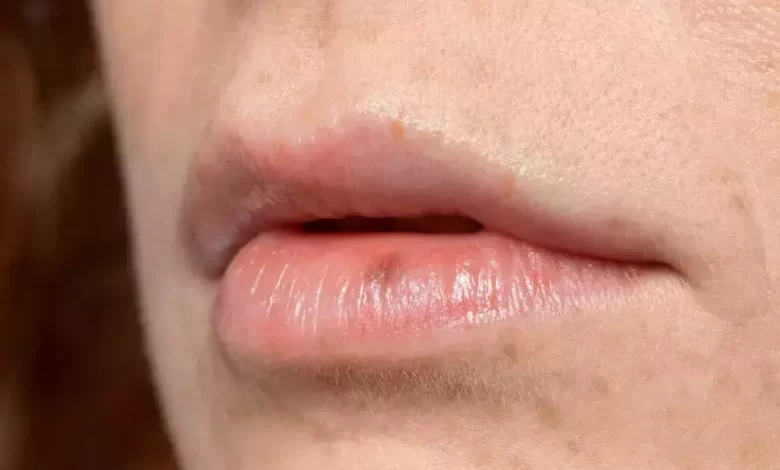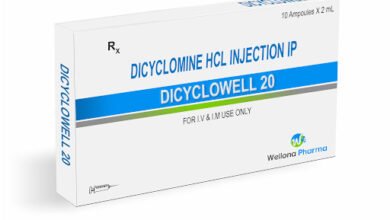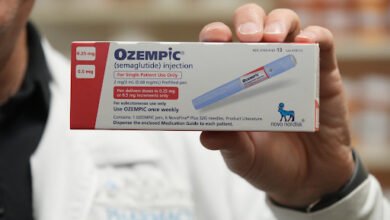What Kills Cold Sores Instantly – Credihealth Blog

You can refer to them as fever blisters or cold sores. Whatever term you prefer, these lesions typically appear around the mouth or on the lip. They are brought on by the type 1 of the herpes simplex virus. The virus, or HSV-1, creates these painful blisters or ulcers. If you see one near your mouth, don’t be self-conscious about it. Many people have cold sores. You probably know someone who has experienced one previously, or you have one yourself.
“What kills cold sores instantly?” is a common question among individuals seeking quick relief from these uncomfortable lesions. People with robust immune systems and no underlying medical disorders, such as eczema, resolve cold sores within 10 days on average. Unfortunately, a cold sore won’t disappear fast, but certain drugs and therapies might lessen its duration and improve your overall health.
What are some treatments for cold sores?
One of the most crucial things to remember when treating a cold sore is to move quickly. You can shorten the duration you have it if you start treating it straight away. Apply a topical antiviral treatment to the area when you feel that distinctive sensation.
1 Tea Tree Oil
Apply tea tree oil straight to the sore by dabbing a little of it on a cotton swab. Repeat this numerous times during the day and just before bed. Tea tree oil is a fantastic alternative because it has antiviral characteristics that eliminate bacteria-spreading infections and hasten the healing process.
2 Ice cult
Place an ice cube on your cold sore to lessen irritation and swelling. Repeat this numerous times during the day to prevent scratching the sore. An ice cube helps speed up the healing of your cold sore since it might lessen swelling.
3 Aloe vera lotion
Aloe vera is a popular natural remedy for cold sores, also known as fever blisters, due to its soothing and anti-inflammatory properties. The sunburn gel can also aid in healing cold sores. According to lab studies, the gel can help battle viruses, such as herpes simplex.
4 Lysine
There are situations when cold sores can be treated with this supplement. It is offered as a cream or a capsule. Some people take lysine supplements to support immune health and manage cold sore outbreaks
5 Propolis
Bees produce this resin-like substance from poplar and cone-bearing tree buds. It can be applied topically to treat cold sores. Propolis has been used in traditional medicine for its potential health benefits, such as its antimicrobial and anti-inflammatory properties.
6 Lemon balm-
According to certain studies, lemon balm extract can also aid in the healing of cold sores. To use lemon balm for cold sores, first clean the area gently. Then, apply a small amount of lemon balm ointment or cream using your fingertip or a clean cotton swab. Repeat this process 2-4 times a day until the cold sore heals. Make sure to wash your hands before and after applying the balm to prevent further infection.
7 Peppermint oil
According to research, peppermint oil can effectively treat cold sores. Using peppermint oil to treat cold sores can provide a cooling sensation and potentially help reduce their discomfort, but it may not “kill” them instantly. The herpes simplex virus causes cold sores, and while remedies like peppermint oil can provide relief, they typically don’t eliminate the virus immediately.
Tips to get relief from cold sore pain-
DIY cures are unlikely to hasten the healing of a cold sore. However, there are things you can do to lessen the discomfort as you nervously wait for the injury to heal.
-
Calm the pain: Lidocaine and benzocaine lotions, available over the counter, can dull the burning and lessen the agony. Look for them at the pharmacy’s dental area, as they are frequently advertised for treating dental discomfort.
-
Moisturize: Moisturize your lips and mouth to prevent the sore from drying out and peeling. However, if you apply lip balm to an open sore, consider it contaminated. After using it on a cold sore, dispose of it once it has healed.
-
Cool it: Applying a straightforward cold compress, such as ice or a cold, damp towel, might help lessen discomfort and redness.
-
Hands off: It may require your willpower to refrain from playing with a cold sore, but try to overcome the urge. Although picking at the peeling skin and scratching it is instinctive, you should let it heal naturally.
What are the options for prescription medicine?
You don’t have to use an over-the-counter topical cream. Antiviral medications on prescription are another option. If you think one of these would be a good choice for you, discuss it with your doctor:
-
Acyclovir (Zovirax) is a drug that can be taken orally and used topically.
-
Famciclovir is a medicine that can be taken orally.
-
Denavir (Penciclovir) is marketed as a cream.
-
The tablet form of valacyclovir (Valtrex) is available.
-
To hasten the healing process, medical experts urge using or taking these medications as soon as possible. You could also use a moisturizing cream when the crust on your cold sore develops a scab.
It’s important to remember that while therapies could shorten healing time, it might only be somewhat faster. The duration of participants’ pain was reduced by less than 24 hours, according to a 2018 review, but acyclovir, penciclovir, or docosanol was only “marginally” more effective at curing cold sores than a placebo.
What not to do about cold sores?
-
A cold sore outbreak or the development of additional cold sores elsewhere on your body may be brought on by certain habits or activities.
-
Prevent triggers. This means that you should avoid certain conditions whenever you can if you know that a hot, sunny day at the hot beach or a lot of stress may cause you to develop cold sores. You can prevent it from progressing further or at least stop it.
-
Never touch. You risk spreading the virus to other areas of your body if you pick at your cold sore. Your epidemic will only become worse if you do that. Please keep your hands off your lips and wash them frequently, especially after touching your face.
-
Not to pop wounds. When a cold sore first emerges, and before it heals, the virus is most prone to spread. You risk spreading the virus to other body regions by popping the blisters.
-
Don’t engage in oral sex, either. You can get a cold sore on your genitalia and disseminate it to other areas.
What are the reasons for cold sores?
-
Herpes simplex is a very common virus that causes cold sores. Most people are first exposed to the virus as infants or young children. It cannot be cured. It doesn’t frequently result in cold sores or other symptoms, but it’s always in your body once exposed to anything.
-
Herpes simplex spreads through direct contact. You can contract the virus if you kiss someone with a cold sore or contact their face before touching your own. Sharing lip balm, a fork, a mug, or a razor with someone with herpes simplex can potentially spread the infection. Although catching the virus from someone with an active cold sore is more likely, it can still spread from someone without any visible sores or blisters.
-
The virus can potentially infect the eyes or genitalia. For instance, if you wipe your eyes after touching your hands to saliva from an infected individual or if you engage in oral sex with a person who has cold sores.
The following factors increase the likelihood of an outbreak:
-
Cold or another ailment
-
High Fever Stress
-
Excessive sun
You will likely be sore when you are initially exposed to the virus. It’ll disappear on its own after a week or two. The virus then becomes latent within your body. Although many people get cold sore outbreaks again, you might not.
Does toothpaste help with cold sore removal?
Unexpectedly, using toothpaste for cold sores may help reduce the symptoms. Many varieties of toothpaste contain sodium lauryl sulphate (SLS), which makes blisters dry. Additionally, they could include components that could have a cooling or numbing impact on the skin. This may lessen symptoms, including pain, itching, burning, and swelling, while reducing inflammation. However, toothpaste is unable to both prevent and instantly cure cold sores.
To reduce the chances of infection, wash your hands before and after applying toothpaste to cold sores. Never give anyone else this toothpaste. Applying toothpaste to the skin, particularly the face, might irritate those with sensitive skin, so you must exercise caution. Avoid rubbing toothpaste on your skin because it could irritate it even more.
Conclusion-
The virus that causes cold sores and fever blisters has no known treatment. When you detect one, you want to get rid of it immediately. You are familiar with the symptoms if you’ve ever experienced a cold sore. The burning begins with the tingling, then spreads to the corner of your mouth or the edge of your lip. Then comes the outbreak: a hideous red sore shows up.
However, you most likely don’t require a doctor. You can take painkillers from your medicine cabinet or use ice or aloe vera at home to ease the discomfort and improve the appearance of cold sores as they recover.
Source link
#Kills #Cold #Sores #Instantly #Credihealth #Blog



